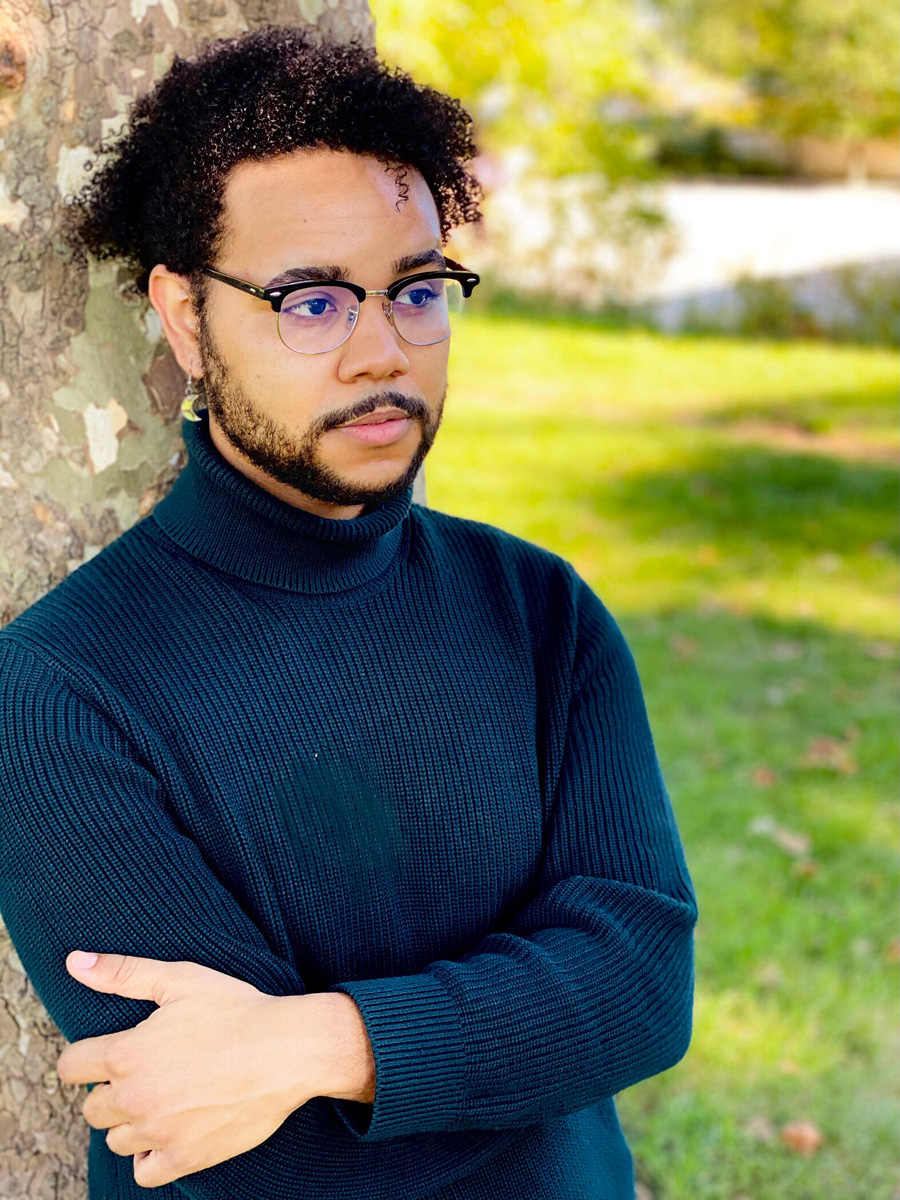It became "A Just Soliloquy," and he combined his words with that of Langston Hughes'
1926 poem "Dream Variations." His classmate, Martin Luther Clark ('15) a tenor who was pursuing his graduate artist certificate in vocal performance,
performed it for a College of Music Voice Departmental class a few months later.
It took added meaning when Clark sang it again this summer, in the midst of the worldwide
Black Lives Matter protests, at a virtual concert presented by current and alumni
members of the Ryan Opera Center Ensemble at the Lyric Opera of Chicago. The Chicago Tribune said it "linked Black activism of two eras, both delivered stirringly by Clark."
"I think it's invaluable and more poignant today," Sweet says.
When he first heard the work, Clark says he instantly loved it. The piece begins with
Sweet's words. Then Clark recites Hughes' poem.
"We're both in the LBGTQ+ community and this tragic thing happened," Clark says. "He
came up with something that would wake up the people and let them become more emotionally
aware of what was happening. It was a beautiful project."
Clark suggested Sweet's piece to the Lyric Opera. A member of the 2020-21 ensemble,
he was scheduled to perform in the Lyric Opera's production of Blue -- the story of a Black family whose son is shot by a police officer -- that would have
been the first opera with an all-Black cast. The opera was canceled due to the coronavirus
pandemic.
Sweet's song and Blue help audience members better understand the perspective of Black Americans.
"It's a big wakeup call," Clark says. "We are afraid to walk out of the door. This
is us presenting our truth. A lot of times when you talk about social injustice to
people who are not people of color, the air gets tight. To express what's inside,
what's challenging -- I had to get over that mental hump. It caused me to tap into
a deeper pool of vulnerability and present that on stage."
Sweet, who currently teaches choir at Garland ISD, enjoys composing, and says it gives
him a way to express his thoughts about social justice.
"Music is a time capsule, and it allows us to really have moments of reflection to
last for centuries," Sweet says. "I don't think a composer knows what their impact
is going to be. Music allows us to leave our fingerprints."
